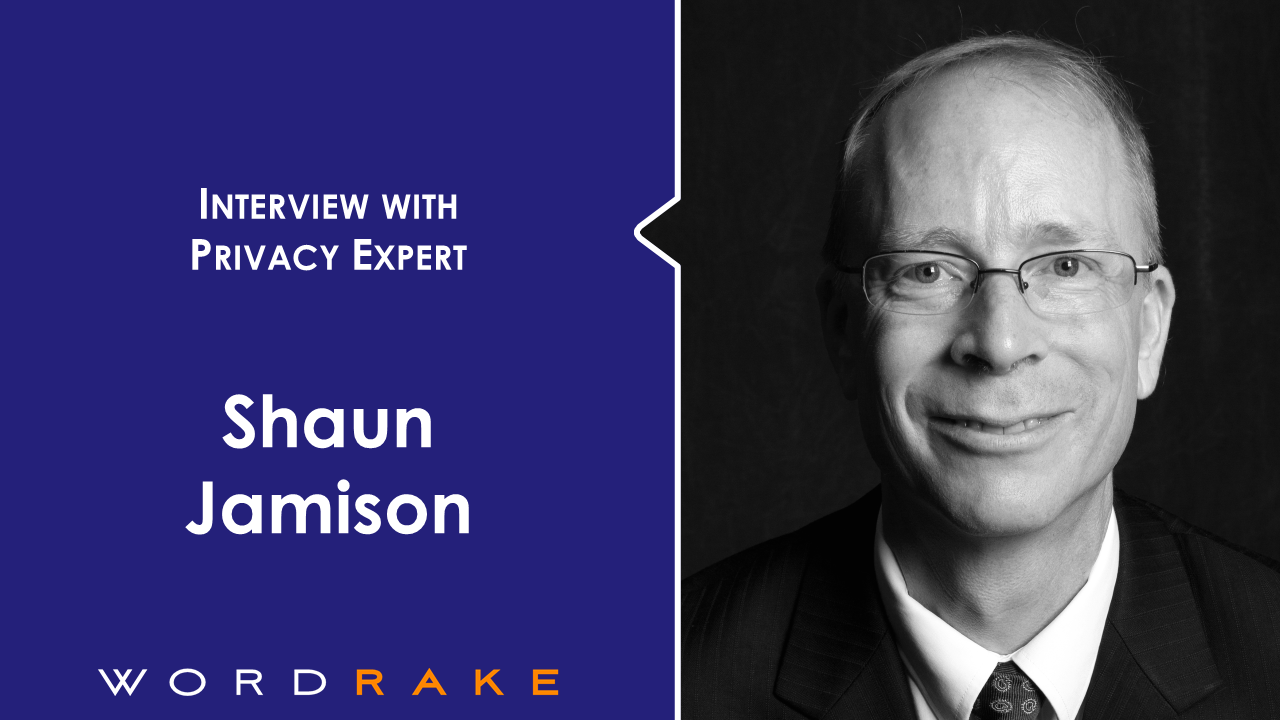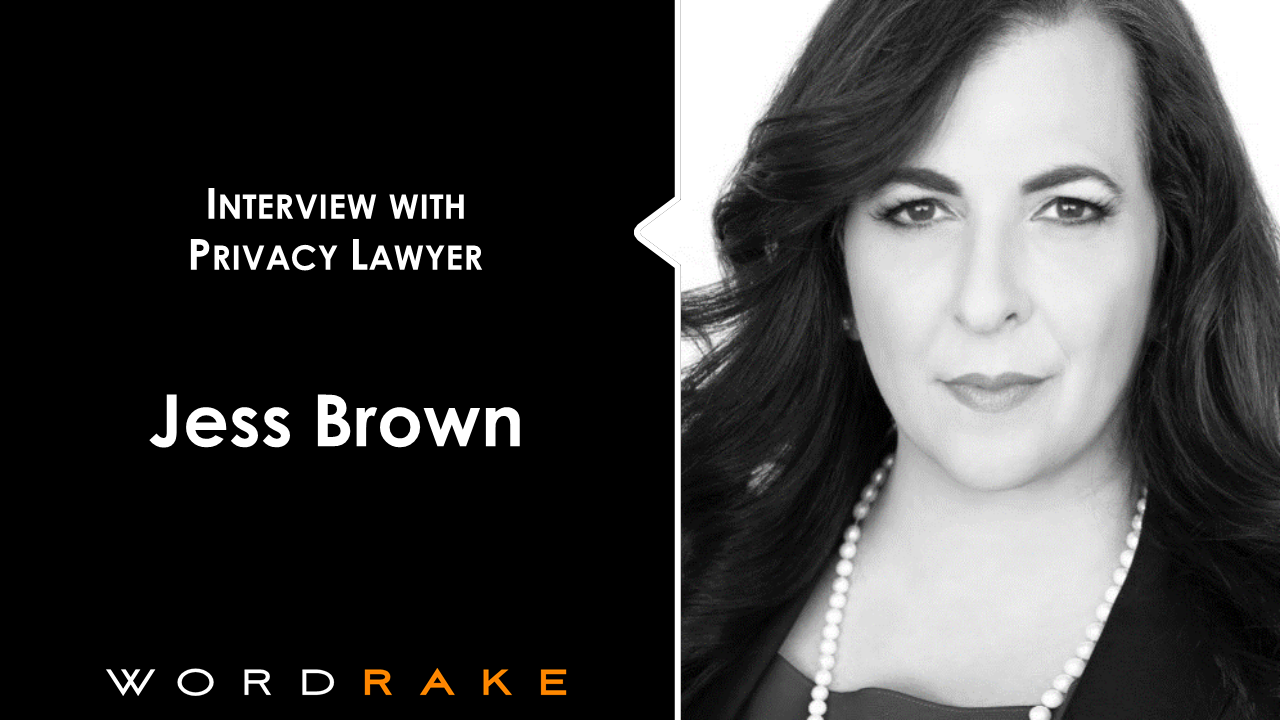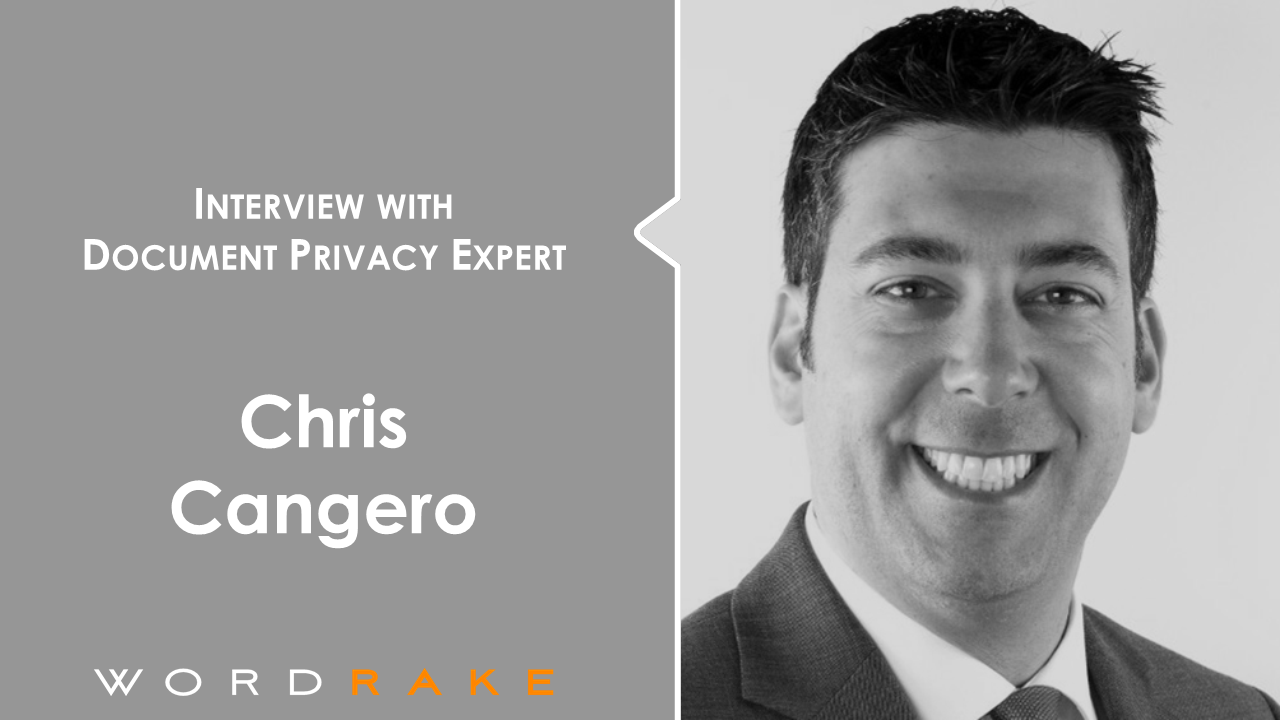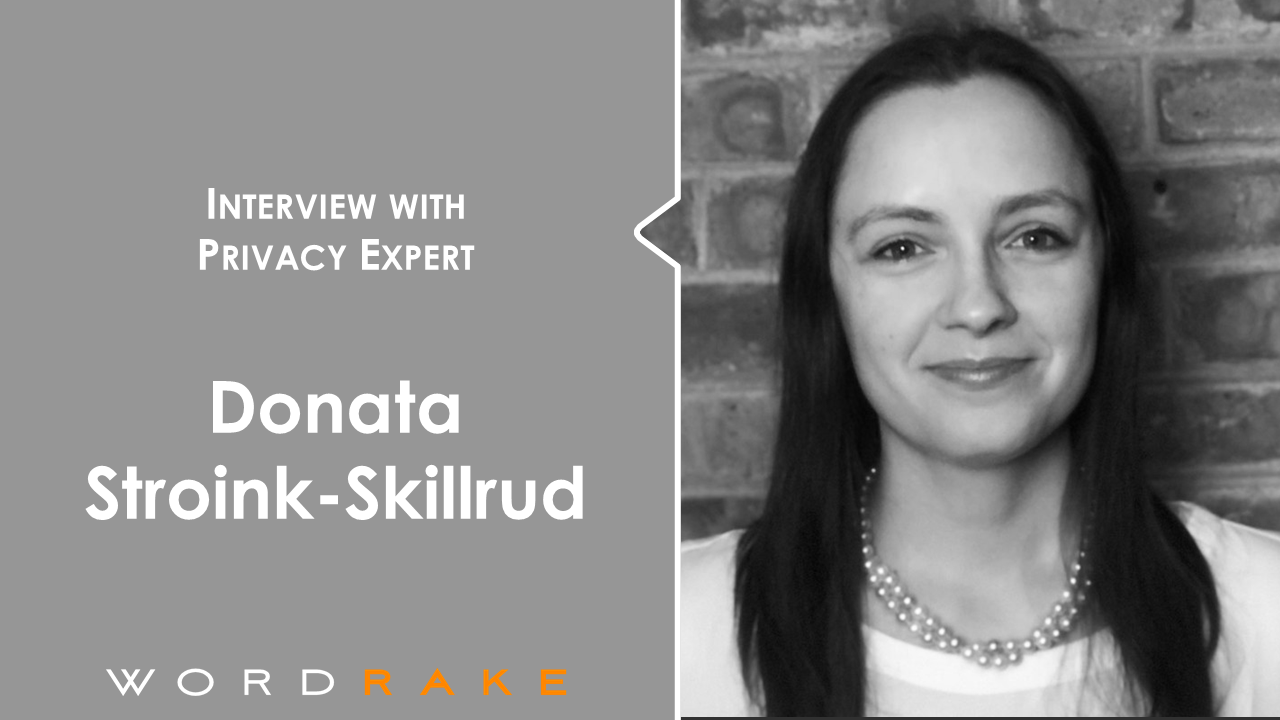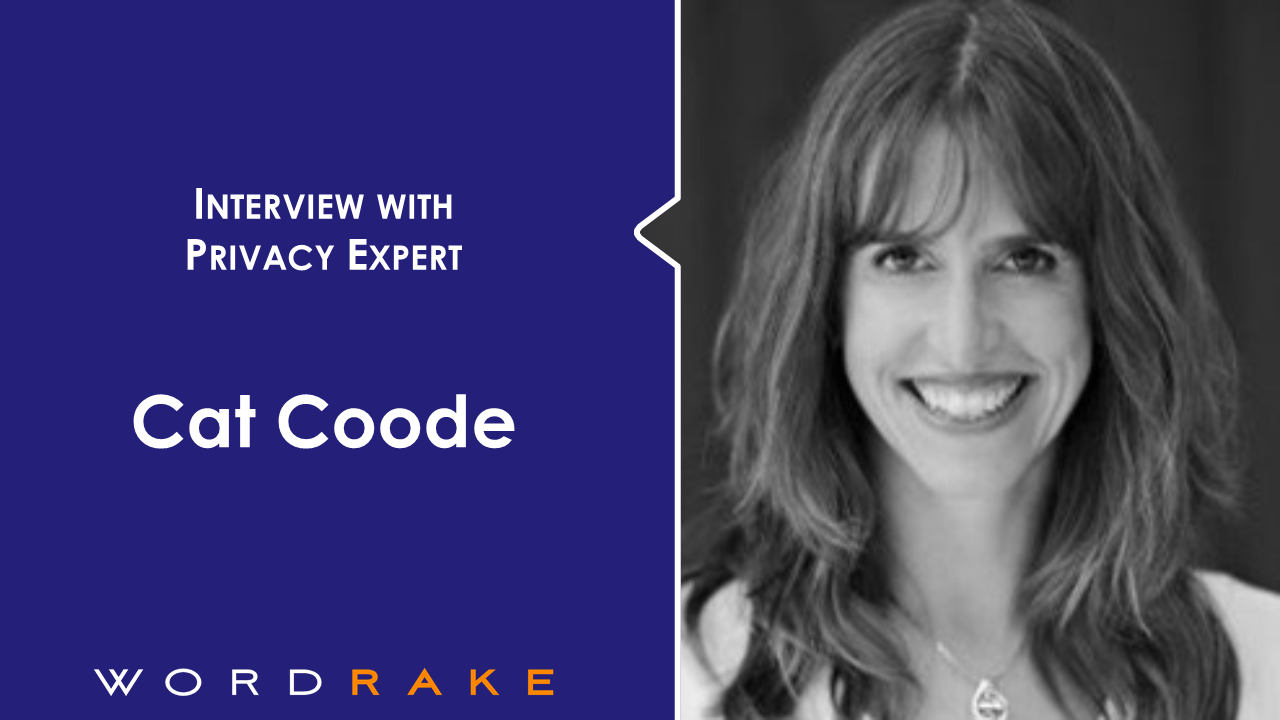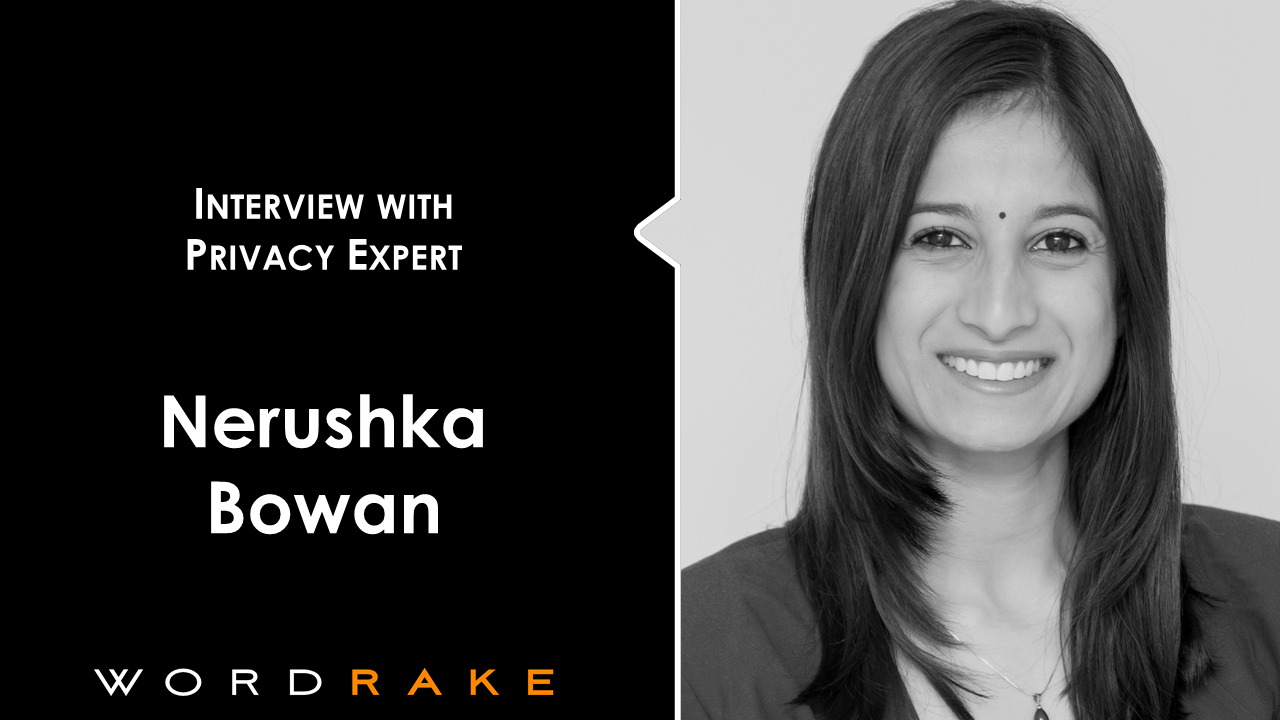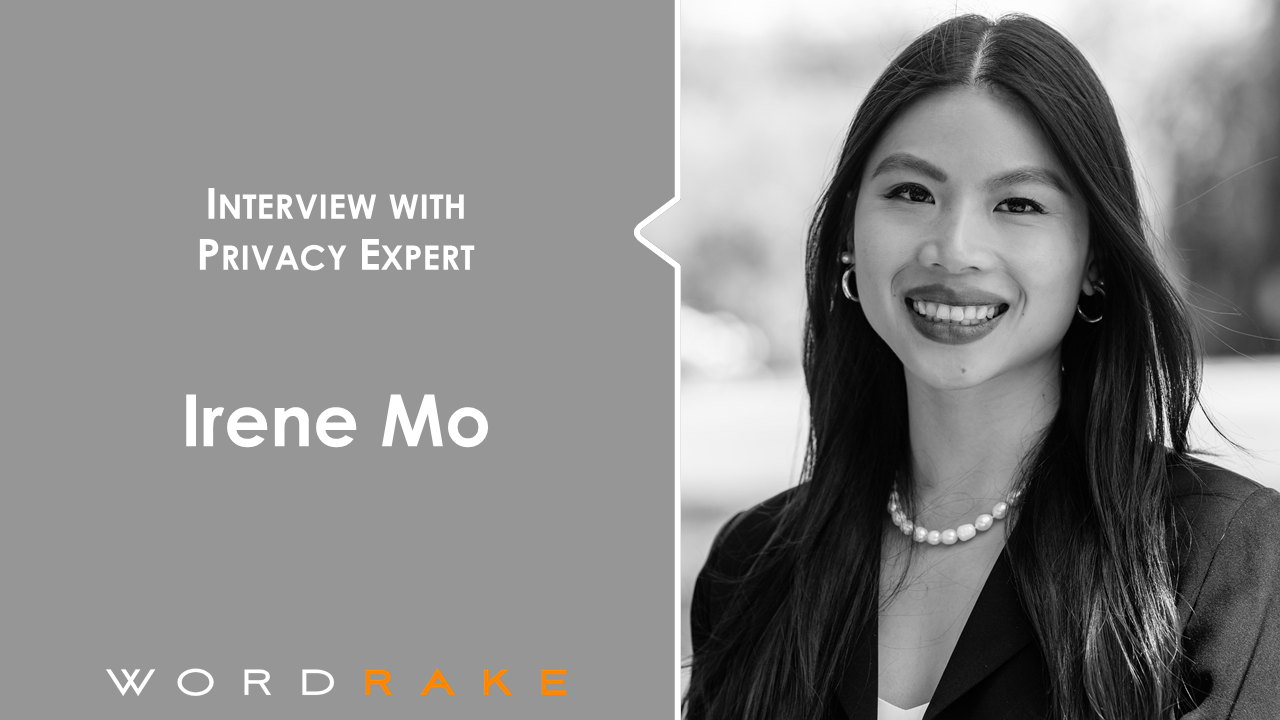Many privacy professionals will persuade by drawing on the fear that private information may be disclosed, but Shaun takes a different approach: He draws interesting distinctions between similar topics and asks questions that will make you think twice.
Continue readingPrivacy Interviews
Recent Posts
User-generated and crowd-sourced content have become familiar terms with the rise of social apps. Though user-generated content has existed outside of the social media context for years, we still fail to grasp its significance in our business and personal lives away from social apps.
Continue readingHave you heard about the importance of metadata but you’re not sure what it is or how to address it? Metadata is data about data, and lawyers are must keep it confidential according to the ethics rules. In this interview with document privacy expert Chris Cangero, you’ll learn about the information in your documents—that doesn’t appear on the page—and discover where it fits in your privacy and security analysis.
Continue reading
Anyone using technology should read the fine print in privacy policies, especially legal professionals. The tools used in the business and practice of law have access to confidential client information—and we’re obligated to protect that information. To adequately protect client confidences, we must know which questions to ask, and understand the risks and benefits of using technology.
In this enlightening interview, privacy expert Donata Stroink-Skillrud explains how to assess privacy policies and which questions to ask when you’re considering new software. Donata also draws attention to potential privacy issues that are often buried within privacy policies, like third-party permission to access data. This interview is the playbook for responsible privacy assessment. Read on for Donata’s helpful advice.
What is your role and how is it related to privacy law?
I am a lawyer licensed in Illinois, and I have been practicing in privacy and technology law for about five years. I am also a Certified Information Privacy Professional, and the President and legal engineer behind Termageddon. Termageddon is a Software as a Service company that has generated thousands of privacy policies and kept them up to date with changing privacy legislation. As the legal engineer, I have drafted policy questionnaires, answer options, and millions of variations on text, so I am very familiar with the privacy policy requirements for privacy laws all over the world. I am also the Vice-Chair of the American Bar Association’s ePrivacy Committee and the Chair of the Chicago Chapter of the International Association of Privacy Professionals. I am also the Chair of the American Bar Association’s ePrivacy Committee, member of the ABA’s Science and Technology Council and the Cybersecurity Legal Task Force. I am also the Chair of the Chicago Bar Association’s Privacy and Cybersecurity Committee and an American Bar Foundation Fellow.
Continue readingPrivacy policies and regulations can seem like an inscrutable web of unmanageable obligations. However, a unified theory of privacy can help these seemingly disparate ideas fall into place and reveal significance. In this powerful interview with privacy expert Cat Coode, she explains how discrete information is more important than we might expect; how we fundamentally misjudge the information we trade away; and how overbroad data collection practices put users and companies at risk. Once you see how all the pieces of the privacy puzzle come together, you’ll re-think your approach to data collection and its implications.
Continue readingFor this interview series, we spoke with privacy experts who looked beyond the obvious, expected, and attention-grabbing privacy issues, to the mundane issues that average people face—but may not recognize. South African privacy expert Nerushka Bowan shows us that privacy is truly an everyday issue, from haphazard use of common social applications; to hard copies of documents left unsecured on desks; to selfies inadvertently showing important documents. Read on for an eye-opening interview about common privacy matters.
Continue readingWhen lawyers hear “inadvertent disclosure” or “exposed client confidences,” they immediately think of stray emails and shadowy hackers. That narrow understanding means we don’t recognize when other issues of confidentiality may be in play. This interview will broaden your thinking.
Continue reading
